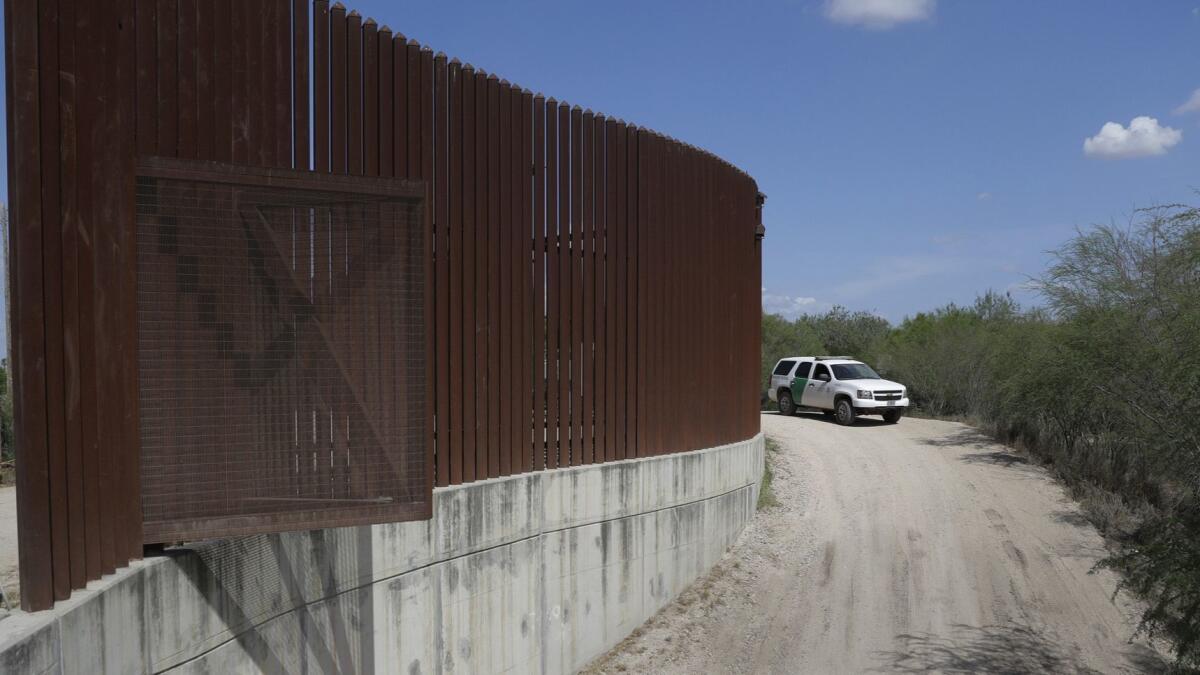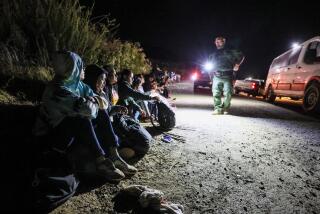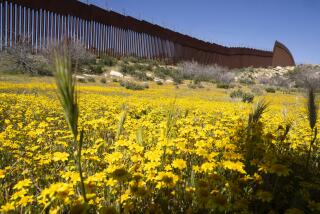Environmental groups file suit to block waivers for Texas border wall

A coalition of environmental groups has sued to stop the Trump administration from speeding construction of the first phase of southern border wall construction by waiving dozens of landmark environmental laws meant to protect air and water quality, public lands and wildlife.
The lawsuit, filed Wednesday in U.S. District Court in Washington, D.C., comes as President Trump threatened this week to send the U.S. military to the Mexican border to stop a caravan of migrants from Honduras, the latest in a wave of Central American families attempting to cross the border illegally.
The federal waivers issued earlier this month concern stretches of added border wall and gates in the Rio Grande Valley, the country’s most heavily trafficked illegal border crossing, where 137,000 immigrants were captured last fiscal year. Officials have said they plan to begin building 37 miles of border barriers there as soon as February.
The latest lawsuit was filed by the Animal Legal Defense Fund, Defenders of Wildlife and the Center for Biological Diversity. The three groups argue that the Department of Homeland Security lacks the authority to waive federal environmental laws such as the Endangered Species, Clean Air and Water acts.
“We hope the lawsuit will have a fighting chance of halting the construction” of the border wall, said Jean Su, a Washington, D.C.-based attorney with the Center for Biological Diversity.
She said the groups offered the same legal arguments in prior challenges to border wall environmental waivers in California and New Mexico. The New Mexico case filed in February is scheduled for oral arguments Dec. 18. A federal judge in March rejected a lawsuit the groups filed with California Atty. Gen. Xavier Becerra and others over stretches of wall in Calexico and San Diego, but the groups have appealed.
“We’re confident in our legal claims — that’s why we’re appealing,” Su said, calling the waivers “an overreach into the legislature’s scope of power and an “unprecedented legal abuse by the Trump administration.”
The Texas waivers are especially troubling, opponents said, because they allow border barriers and gates to pass through precious habitats for endangered species in a wildlife corridor that includes Bentsen-Rio Grande Valley State Park, the World Birding Center and the National Butterfly Center.
Carlos Diaz, a spokesman for Homeland Security, said they do not comment on pending lawsuits.
Loren Flossman, the U.S. Border Patrol’s wall project portfolio manager, has been meeting with Rio Grande officials and landowners and said their input would be considered as construction proceeds. Border Patrol officials and Democratic Rep. Henry Cuellar, who represents the area, plan to hold local closed-door meetings with landowners later this month ahead of border wall design contracts being awarded Nov. 1.
“We have made some adjustments” to the wall design, Flossman said, based on landowner feedback and “natural geography.” He said officials have also modeled the potential impact of the wall on surrounding floodplains and the Mexican riverbank, as required by international treaties.
In waiving environmental protections in Texas, authorities cited the Illegal Immigration Reform and Immigrant Responsibility Act of 1996 allowing construction of barriers that “deter illegal crossings in areas of high illegal entry into the United States.”
While the number of immigrants caught crossing the border illegally is far below what it was a decade ago, the number of migrant parents crossing with children surged to record levels in recent months after Trump ended family separations at the border.
Groups of more than a hundred Central American parents and children have been caught crossing the Rio Grande and the Arizona desert in recent weeks, according to reports from Border Patrol and advocates. So many arrived in Tucson that a church was converted into a temporary respite center.
Border Patrol agents arrested 16,658 family members in September, the highest monthly total on record and an 80% increase from July, according to unpublished Homeland Security figures reported by the Washington Post. Diaz said he could not confirm those figures until the agency releases its annual report for the federal fiscal year that ended last month.
molly.hennessy-fiske@latimes.com
Twitter: @mollyhf
More to Read
Sign up for Essential California
The most important California stories and recommendations in your inbox every morning.
You may occasionally receive promotional content from the Los Angeles Times.










